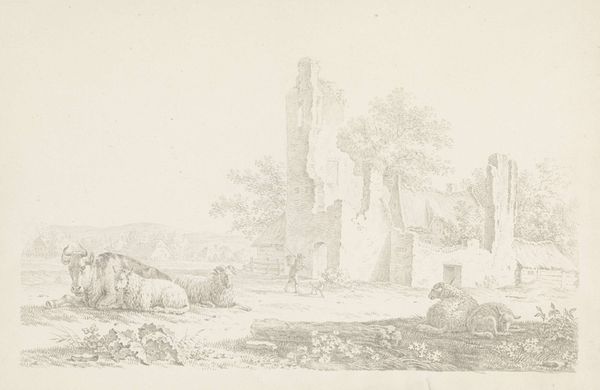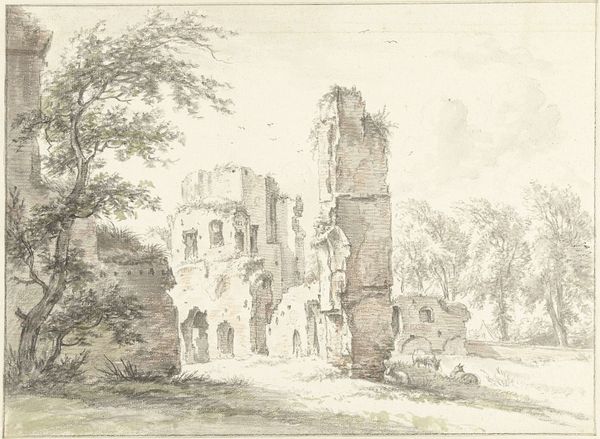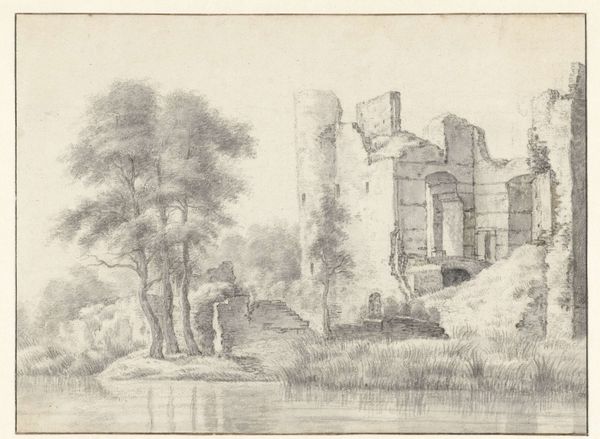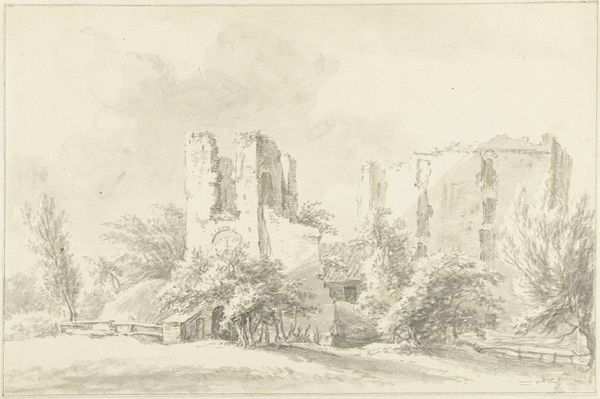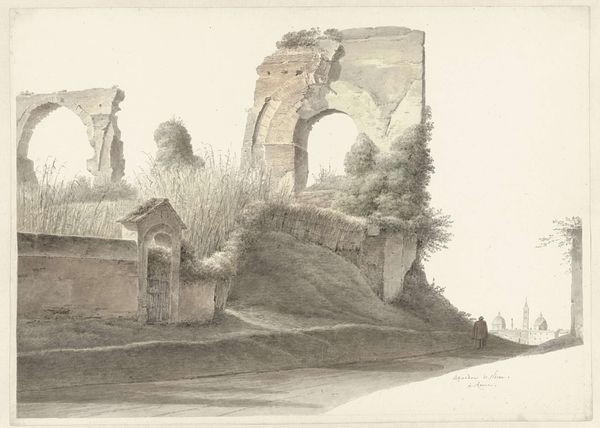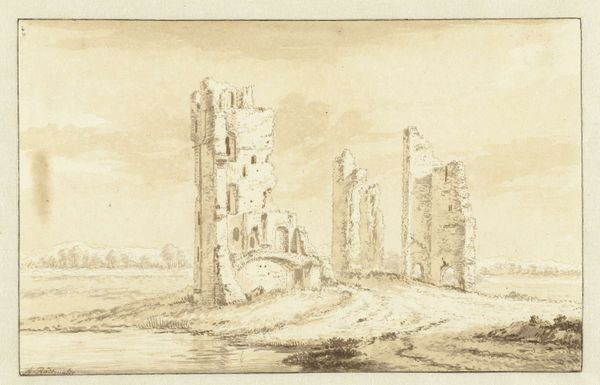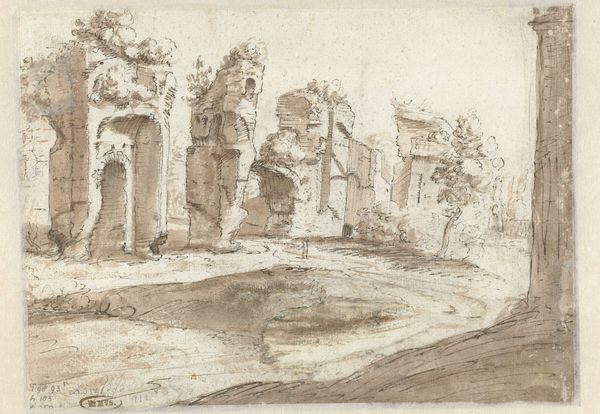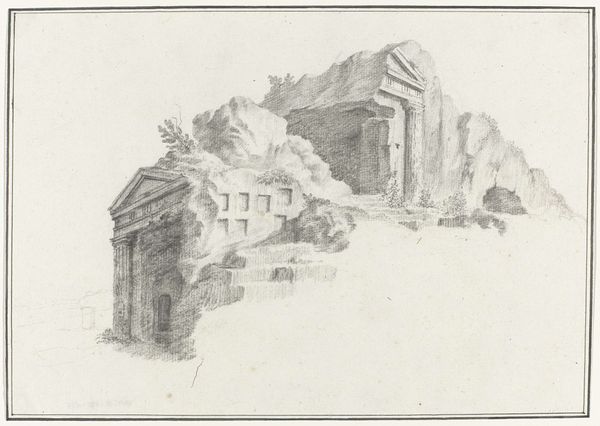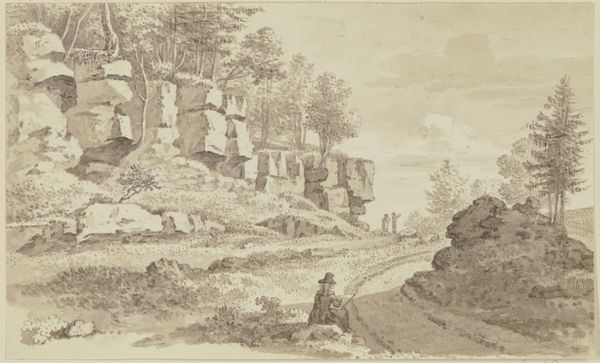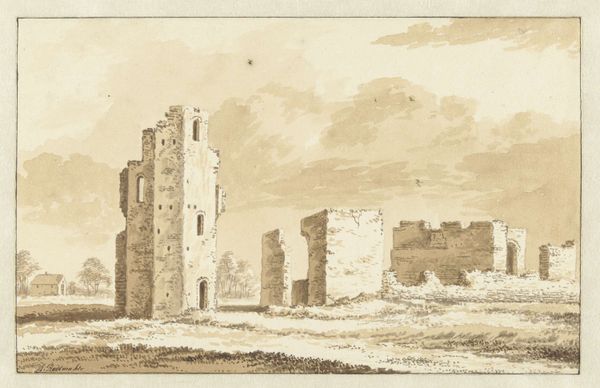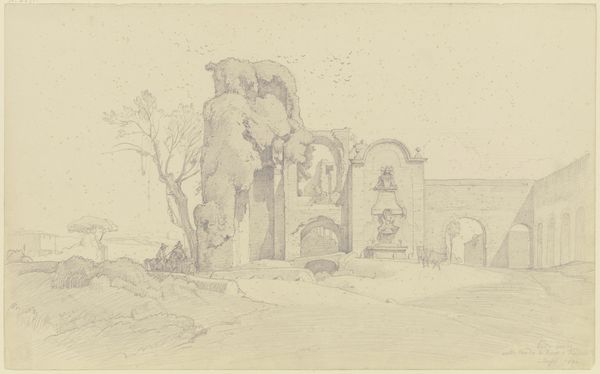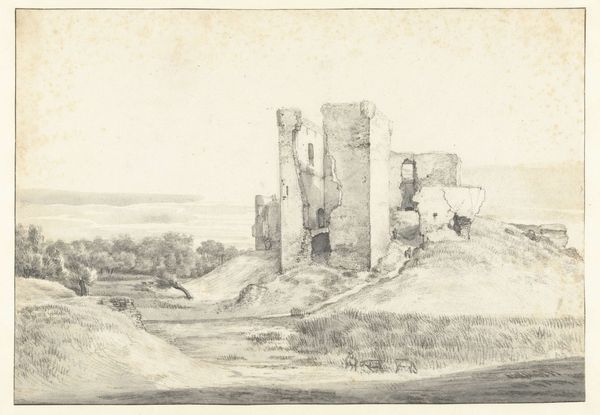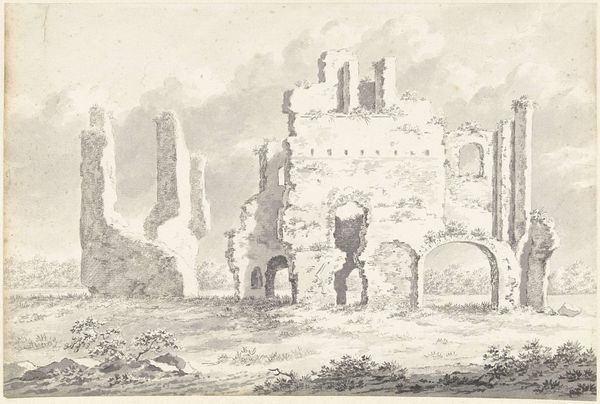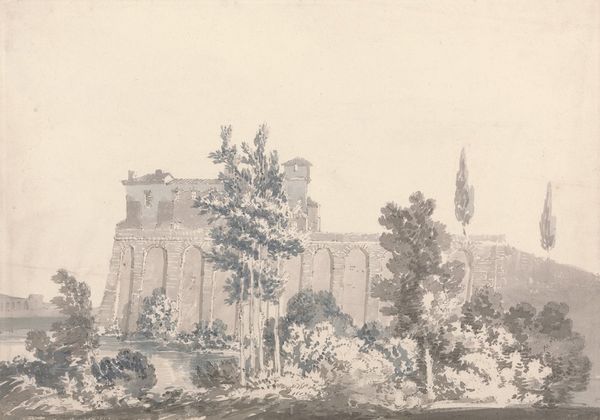
drawing, pencil, graphite
#
drawing
#
pencil sketch
#
landscape
#
romanticism
#
pencil
#
graphite
#
cityscape
Dimensions: height 357 mm, width 480 mm
Copyright: Rijks Museum: Open Domain
Egbert van Drielst made this watercolor drawing of the Ruïne van Rijnsburg. The ruin is what remains of a medieval abbey, which was a powerful institution until it was secularized during the Reformation. This drawing was made at a time when the Netherlands was undergoing profound social change. It was the period of the Batavian Republic, when new ideas about citizenship and national identity were emerging. The image creates meaning through associations with the medieval past. In the 18th century, the ruins became picturesque symbols of the decline of religious institutions. The rise of the Dutch Republic was connected with an intellectual culture that questioned the power of the Church. The artist emphasizes the contrast between nature and culture by juxtaposing the architecture with the organic forms of trees. This work reminds us that the meaning of art is contingent on the social and institutional context in which it is viewed. We can use archives and other historical resources to help us better understand that context.
Comments
No comments
Be the first to comment and join the conversation on the ultimate creative platform.
